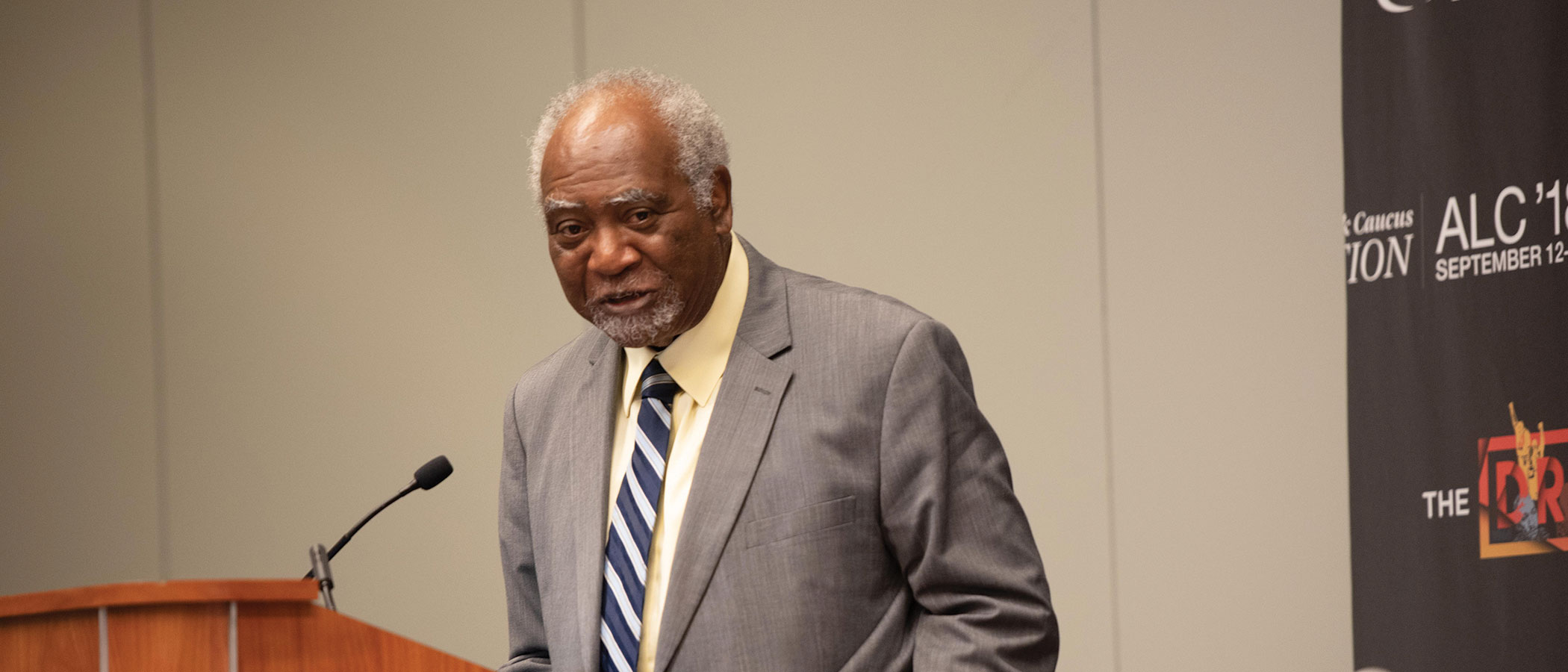Reentry. It’s a concept well known to those seeking to reintegrate into society after incarceration. However, it’s a transition that’s not so easily accomplished, with chronic unemployability and lack of housing emerging as persistent hurdles.
“The biggest challenge is having a place to live,” said Rep. Danny K. Davis (D-Ill.), who hosted a session on reentry during the 48th Annual Congressional Black Caucus Legislative Conference (CBC).
A longtime advocate for ex-offender rights, Davis explained that support systems from family or smaller communities can be pivotal in improving the lives of those in need by providing transitional housing and other resources.
If the average person comes home from prison and gets help, according to Davis, the chances of recidivism go down proportionately with the value of the program. “If it’s a good program and they get a job, the chances are they will never see the inside of a prison again,” he noted during the September event.
As part of the latest CBC conference, Davis presented a series of panels looking at workforce development efforts in Chicago, Illinois to integrate returning citizens back into their communities. Here, JOBS Coalition Pathways highlights two innovative approaches to finding gainful employment for the formerly incarcerated.
Sweet Beginnings LLC
Jobs creation takes many forms, and for Sweet Beginnings that translates into hiring former inmates to make products “utilizing the beauty of nature through a simple honey bee,” said Brenda Palms Barber, president and CEO of the social enterprise Sweet Beginnings, which creates honey-infused products from its collection of beehives.
Tucked away in the Chicago community of North Lawndale, the business was started to help men and women successfully reintegrate — which extends beyond the organic process of reentry. “Reintegration is how do we wrap our arms around individuals, provide them with comprehensive services that not only help them stabilize their lives through housing and comprehensive support services, but for me it’s also about how to restore their sense of self worth,” Barber said.
It’s a challenging endeavor for a country that holds millions behind bars, according to Barber, and releases nearly 90 percent of its incarcerated to return to their communities. “When folks come out, they are really behind the gun,” she stated.
Sweet Beginnings, for one, is fighting the chronic unemployment facing the formerly incarcerated by training individuals to work as beekeepers. Plus, it is providing these individuals with an opportunity to cultivate business savvy skills. For example, they are learning about inventory, shipping and receiving, and customer service, Barber said.
“So they have an inside understanding of how to run a business and what makes a good employee,” she continued, noting that to date 471 men and women have been hired through Sweet Beginnings. It’s a declaration that drew applause from the audience.
And based on tracked data, she said for the last 10 years less than 4 percent of those hired by the business have returned to incarceration. “When you can align a little bit of who you are with a product that is distributed nationally and people know that you have something to do with that product, it’s one more thing that says, ‘You’re important, you’re producing something good and to be proud of that,’ ” Barber said.
The business produces a variety of feel-good products, from jars of raw natural honey to honey-infused natural skincare products like lip balms. “As long as there are too many people being released from prison, we have to have meaningful ways for them to reintegrate back into society,” she noted. “And Sweet Beginnings,” Barber stated, “is a viable way to do that.”
Nichelle Benford’s Dream Chef Kitchen
For Nichelle Benford, the journey to entrepreneurship was not an easy one. Reared in the values of “be educated and find a good job” for stability and “marry well,” Benford admitted that as a woman there was no emphasis on entrepreneurship.
In turn, she deterred her passion to support her then-husband and help him start his own business. Benford said that willingness to sacrifice herself continued when committing perjury and obstruction of justice by being an alibi. “I was sentenced to 37 months in federal prison. I ended up doing 15 months and six months in a halfway house,” she shared.
Prison proved a life-changing experience, with Benford losing everything. “I thought my life was over,” she said, reflecting on the designer clothes, nice home and cars, and history of modeling pre-incarceration. Then, came the ultimate realization.
“I wasn’t special and I was like most women that were in prison for someone else,” Benford said. It would be her trajectory.
Looking at other women in similar situations gave Benford the strength to be a leader after release while encouraging other women to follow their dreams and become entrepreneurs. Enter her business: Dream Chef Kitchen. What started as a food truck has evolved into a self-sustaining restaurant and catering company. There, she hires ex-offenders and also conducts job training.
Benford readily admits that she had something many don’t upon release: a support system of family. “I came home to people that loved me; the average person doesn’t have that,” she said, propelling her to give to those without such encouragement in their lives. Concluded Benford: “You can fail and get back up.”

